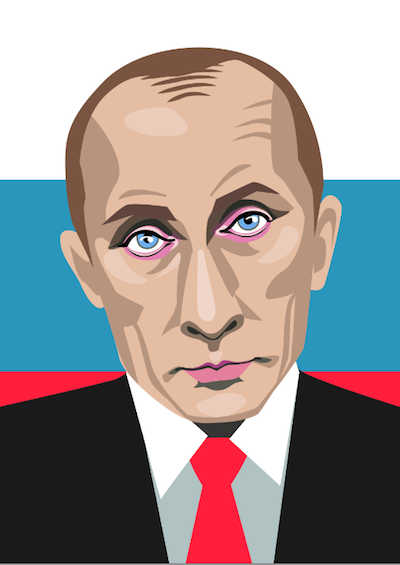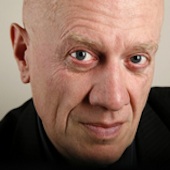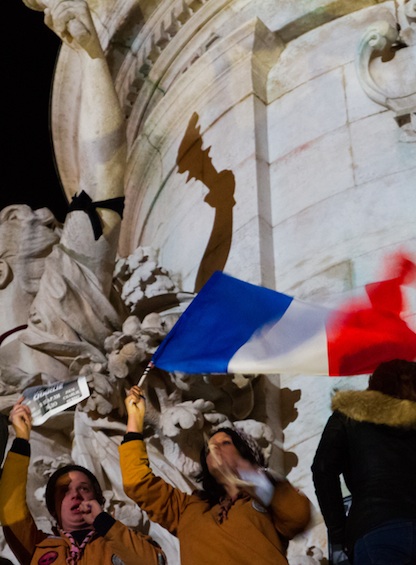Hannah Arendt, Putin and Today’s Russia
Hannah Arendt would have found a lot to dislike about today’s Russia. But she would have loved Pussy Riot.
January 17, 2015

Hannah Arendt teaches us that democratic societies are faced with a double threat. One is the systematic blurring of the distinction between truth and lies. The other is the temptation to close one’s eyes and ears to inconvenient truths.
Both of these come into play in understanding and dealing with the conflict in Ukraine.
Regarding inconvenient truths, we do not want to admit that Putin has long since crossed the line into war – a line that, for good reasons, we do not want to cross under any circumstances.
Regarding systematic blurring, we do not want to see the connection between Russia’s internal authoritarianism and outward expansion. It interferes with our illusory hope for a quick return to good neighborliness.
We Europeans also hesitate to take the national-religious tone Putin struck in his recent address to the nation seriously, as he declared the repatriation of Crimea to be a “sacred matter.”
It is precisely that symbiosis of Russian Orthodoxy and political power that Pussy Riot wanted to unmask with its protest in the Cathedral of Christ the Redeemer in Moscow.
Nadezhda Tolokonnikova and Maria Alyokhina, members of the Russian punk band Pussy Riot, represent the untamed spirit of freedom that characterizes the Russian cultural scene, human rights movement and feminist circles, despite all efforts to repress them. No wonder Putin had them jailed.
Arendt’s essay “Truth and Politics” was published in the New Yorker in 1967. In the text, she touches on nearly everything one needs to know today to understand the Kremlin’s policy of disinformation.
Rejection of fundamentalism
Her essay is a rejection of any form of fundamentalism in which policy serves as the executor of absolute truths, whether of religious, scientific or ideological provenance.
Arendt certainly does not mean that the difference between truth and lies is irrelevant in the political realm.
Political debate is a matter of reasoned opinions. It is based on different valuations of actual events and facts, that is, on “factual truths.”
Arendt considers blurring the distinction between facts and opinions “no less shocking than people’s resistance to the truth per se,” when that truth happens not to suit them.
Arendt makes a distinction on the one hand between mathematical, scientific and philosophical truths, which constitute “rational truth,” and, on the other hand, “factual truths,” which form the foundation of democratic opinion.
Arendt wrote, “When political power misappropriates rational truths, it oversteps its boundaries, while any assault on factual truths takes place within the political realm itself… Any claim to absolute truth within the realm of human affairs that professes to be independent of humans’ opinion takes an ax to the roots of all policy and to the legitimacy of all forms of government.”
It is precisely this blurring that the Kremlin’s propaganda achieves so cunningly. An example: When the Malaysian airliner was shot down over the “Donetsk People’s Republic,” killing 298 people, a variety of theories were promptly conjured up and publicized on Russian television.
Creating systematic confusion
The theories also found a wide audience on the Internet. According to stories featured there:
1.The plane was shot down by Ukrainian artillery.
2.Ukrainian fighter jets were the culprits. (Russian state television showed a suitable photo montage.)
3.U.S. warplanes were involved: The whole affair was a deliberate conspiracy to fabricate a pretext for war against Russia.
4.Or the assertion that truly took the cake: The plane had been a flying coffin from the outset, packed with corpses intended to be brought down deliberately onto the separatists’ territory.
The internal contradictions between these versions are not relevant. Systematic confusion was the objective here, not fact-finding.
As a result, any version will seem as questionable as any other, any findings are suspected of manipulation, and any circumstantial evidence that implicates the pro-Russian separatists is cast as conjecture driven by vested interests.
For that to work all evidence on the ground had to be tainted — and that is precisely what happened.
One can draw various conclusions from social circumstances. But anyone who manipulates empirical facts and reduces them to mere material with which to shape political opinion is also eliminating the foundation for freedom of opinion.
As Hannah Arendt says, “Freedom of opinion is a farce unless factual information is guaranteed.” She cites a quip by the French statesman Clemenceau, who in the late 1920s was asked what future historians will probably think about the then – as now – controversial issue of war guilt.
Clemenceau replied, “This I don’t know, but I know for certain that they will not say Belgium invaded Germany.”
In politics, the opposite of truth is a lie
It would actually be a step forward in the current debate if we could agree that it was not Ukraine that attacked Russia, but vice versa.
In science, the opposite of the truth is the error. In politics, that opposite is the lie — a conscious act of untruth.
How else can you describe the Kremlin’s denial of the involvement of Russian troops at the beginning of the military intervention in Crimea? The official denial did not even stop Putin from awarding medals to the involved special forces afterward.
To Putin, what matters is not the consistency of the respective narratives, but their political expediency. The facts are mere material for political propaganda.
The same game is now being played in the intervention in eastern Ukraine. Once again, military aggression is being thinly disguised as an armed uprising of “Russian compatriots.”
The representatives of power continue to deny the presence of Russian weapons and troops in Donbass. The list of orchestrated distortions, half-truths and outright lies is growing longer by the day.
The distortion list includes the mantra-like assertion that a “fascist putsch” took place in Kiev, talk of a “civil war” in Ukraine, the evocation of an anti-Semitic threat, the reference to the Ukrainian government as a “fascist junta,” and so on.
Cold War language or democracy’s foremost tool?
Russia’s Foreign Minister Lavrov is a grandmaster in the twisting of facts. When he claims that Russia is not a warring party, everyone knows that he is lying, and he knows that everyone knows, but that does not bother him.
Lavrov is confident that no one would dare call him a liar – that would, after all, be the language of the Cold War. Instead, Germany’s Foreign Minister can be found cozying up to his “dear friend Sergey” on public stages.
If Chancellor Merkel speaks frankly after a long evening conversation with President Putin, there will be no shortage of voices from Russia afterwards warning of “rhetorical escalation.”
What will happen to us when we no longer dare to call things as we see them? Accepting the lie is the first step of liberal democracy’s self-abandonment.
It puts us on the slippery slope of relativizing facts, which ultimately leads to relativizing all values. Sometimes calling a spade a spade is indeed a political act.
Arendt’s teachings and Ukraine today
We do not want to acknowledge that our neighbors in Poland and the Baltic states once again feel threatened by Russia. Why? Because we no longer want anything to do with military deterrence and because we would like to see NATO as historically obsolete.
However, burying our heads in the sand will not help. Any realistic policy begins with recognizing “factual truths,” to return to Hannah Arendt’s parlance.
The political conclusions are open to debate – a debate we must not avoid.
Editor’s Note: This feature is an excerpt from the lecture,”About Truth and Lies in Politics,” by Ralf Fücks upon the occasion of the 2014 Hannah Arendt Prize awarded in Bremen, Germany, on December 5, 2014.
Takeaways
We do not want to see the connection between Russia’s internal authoritarianism and its outward expansion.
“Freedom of opinion is a farce -- unless factual information is guaranteed.” (Hannah Arendt)
It would be a step forward in the current debate if we agreed that it was not Ukraine that attacked Russia.
Putin struck a national-religious tone as he declared the repatriation of Crimea to be a sacred matter.
Pussy Riot wanted to unmask that symbiosis of Russian Orthodoxy and political power with their protest.
Accepting the lie is the first step of liberal democracy’s self-abandonment.

